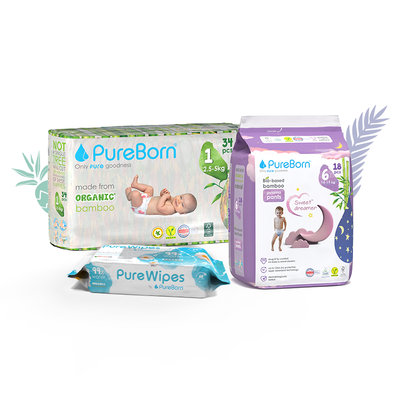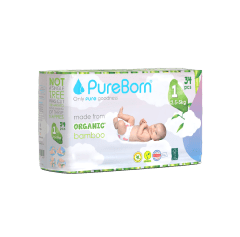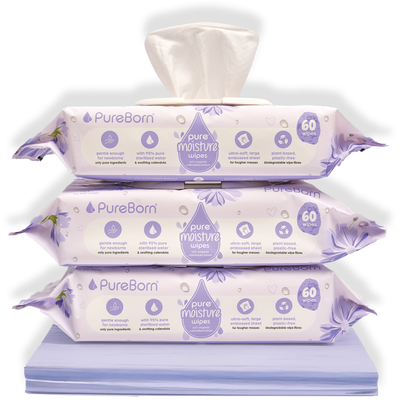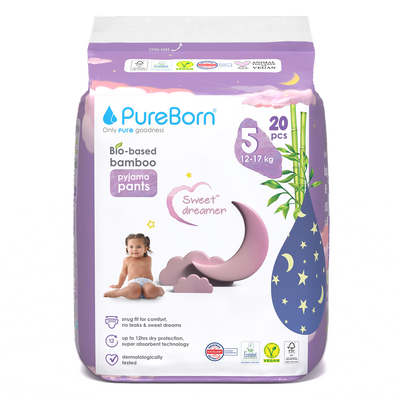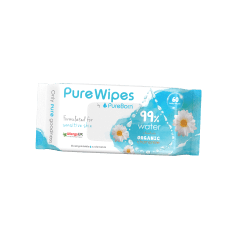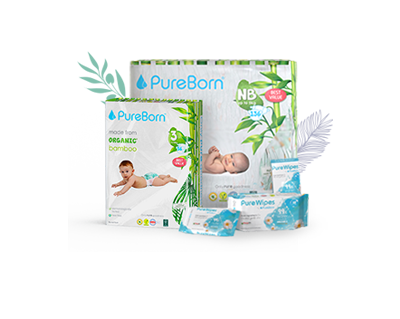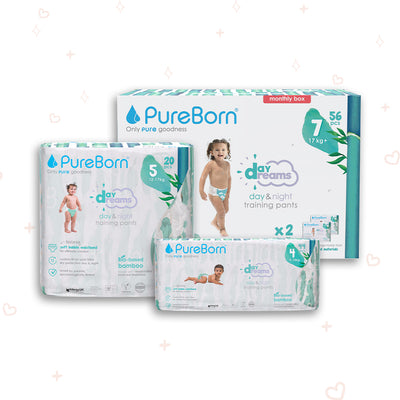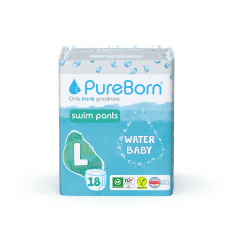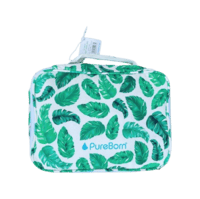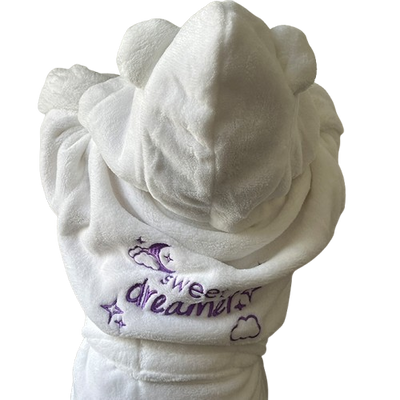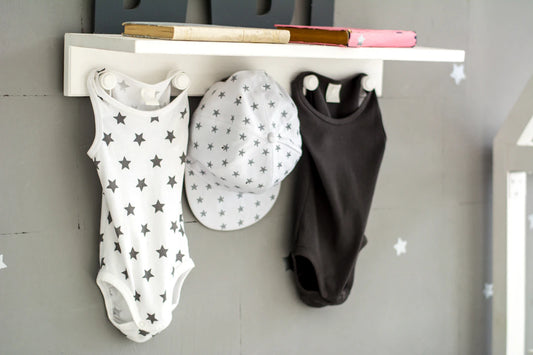Overview
Bamboo nappies are eco-friendly, hypoallergenic, and biodegradable, making them a great choice for babies with sensitive skin. Traditional disposable diapers offer convenience but have a larger environmental impact. Consider your family's needs, budget, and values when deciding between the two options.
Table of Contents
- Frequently Asked Questions
- Understanding Bamboo Nappies
- What Are Bamboo Nappies?
- Benefits of Bamboo Nappies
- The Traditional Disposable Diaper
- What Are Disposable Diapers?
- Benefits of Disposable Diapers
- The Environmental Impact
- Bamboo Nappies' Environmental Footprint
- Disposable Diapers' Environmental Concerns
- Cost Analysis of Bamboo Nappies vs. Disposable Diapers
- Investing in Bamboo Nappies
- Running Costs of Disposable Diapers
- Handling Baby's Sensitive Skin
- Bamboo Nappies for Sensitive Skin
- The Concerns with Disposable Diapers
- Ease of Use and Convenience
- Using Bamboo Nappies
- Using Disposable Diapers
- Making the Right Choice for Your Family
- Questions to Ask Yourself
- Innovations in Diaper Technology
- Join the Sustainable Parenting Movement!
Frequently Asked Questions
1. What are bamboo nappies?
2. What are the benefits of using bamboo nappies?
3. How do traditional disposable diapers compare to bamboo nappies?
4. Which option is better for a baby with sensitive skin?
5. What should parents consider when choosing between bamboo nappies and disposable diapers?
When it comes to choosing the best nappies for your little one, the options can be overwhelming. With sustainable practices gaining traction, many parents are asking: which is better, bamboo nappies or traditional disposable diapers? In this post, we will explore the differences, benefits, and drawbacks of both options. Our goal is to help you make an informed decision that best suits your family's needs, particularly if you have a baby with sensitive skin. So, let’s dive deep into the world of sensitive skin baby nappies!
Understanding Bamboo Nappies
Bamboo nappies have emerged as a popular choice among environmentally-conscious parents. Made from natural bamboo fibers, these nappies offer a variety of benefits. Here’s what you need to know:
What Are Bamboo Nappies?
Bamboo nappies are designed to be soft, absorbent, and biodegradable. The bamboo plant is renowned for its rapid growth and sustainability, making it an eco-friendly choice for diapering. The fabric used in bamboo nappies is often mixed with other materials like cotton or hemp to enhance durability and absorbency.
Benefits of Bamboo Nappies
- Hypoallergenic and Gentle: Bamboo fibers are naturally hypoallergenic and antibacterial, making them an ideal choice for babies with sensitive skin.
- Biodegradable: Unlike traditional disposable diapers that can take hundreds of years to decompose, bamboo nappies can break down in a matter of months.
- Highly Absorbent: Bamboo can absorb up to three times its weight in moisture, offering great protection against leaks.
- Temperature Regulating: Bamboo fabric is breathable and helps to regulate your baby’s temperature, keeping them comfortable in both warm and cool weather.
The Traditional Disposable Diaper
On the flip side, traditional disposable diapers have been a staple in parenting for decades. Their convenience and widespread availability make them a go-to choice for many families.
What Are Disposable Diapers?
Disposable diapers are made from a combination of synthetic materials, including plastic, sodium polyacrylate (a super absorbent polymer), and wood pulp. They are designed to be thrown away after use, making diaper changes quick and easy.
Benefits of Disposable Diapers
- Ease of Use: Disposable diapers are very convenient, perfect for busy parents on the go. Simply use and toss!
- Wide Availability: They are available almost everywhere, making them easy to find.
- Good Absorption: Designed specifically for leak protection, many disposable diapers can hold a significant amount of liquid.
The Environmental Impact
One of the biggest factors to consider when choosing between bamboo nappies and disposable diapers is their impact on the environment.
Bamboo Nappies' Environmental Footprint
Bamboo nappies have a smaller environmental footprint. They are made from renewable resources and can decompose significantly faster than disposables. However, it is essential to consider that not all bamboo nappies are created equal; look for brands that use sustainable practices in production.
Disposable Diapers' Environmental Concerns
Disposable diapers have a much larger environmental impact. They are typically made from materials that do not break down easily, contributing to waste in landfills. Estimates suggest that a single child in disposable diapers can generate over 5,000 diapers in their diaper-wearing years!
Cost Analysis of Bamboo Nappies vs. Disposable Diapers
Cost is often a significant consideration for parents. Let’s break down the financial aspects of both options.
Investing in Bamboo Nappies
While bamboo nappies may have a higher upfront cost, they can ultimately save you money in the long run. Many bamboo nappy systems are reusable, and with proper care, they can last through multiple children. Additionally, you won’t need to continually purchase new supplies as you would with disposable diapers.

Running Costs of Disposable Diapers
On the other hand, disposable diapers come with a continuous expense. Families can expect to spend hundreds, if not thousands of dollars on disposable diapers as their child grows. For parents facing financial constraints, these accumulating costs can be significant.
Handling Baby's Sensitive Skin
If your baby has sensitive skin, choosing the right nappy is crucial. Both bamboo nappies and disposable diapers have their pros and cons when addressing sensitive skin issues.
Bamboo Nappies for Sensitive Skin
Bamboo nappies are often recommended for babies with sensitive skin due to their hypoallergenic properties. The natural fibers are less likely to cause irritation or rashes...
The Concerns with Disposable Diapers
While many disposable brands claim to be gentle for sensitive skin, they often contain fragrances, dyes, and other chemicals that could irritate delicate skin. Parents need to carefully read labels to ensure they select the right disposable diaper if they go this route.
Ease of Use and Convenience
For many parents, convenience can outweigh other factors. Let’s see how both options compare in terms of ease of use.
Using Bamboo Nappies
Bamboo nappies require a little more effort, particularly regarding washing and maintaining cleanliness. However, many parents find the extra work to be manageable, especially knowing they are making eco-friendly choices.
Using Disposable Diapers
Disposable diapers are undeniably convenient, especially for travel and outings. There’s no need for cleaning or worrying about laundry, simply change your baby and throw the used diaper away!
Making the Right Choice for Your Family
The decision between bamboo nappies and traditional disposable diapers ultimately depends on your family's needs, values, and circumstances. Here are some considerations:
Questions to Ask Yourself
- Do you prioritize environmental sustainability?
- Is reducing waste a concern for you?
- How sensitive is your baby’s skin?
- Can you commit to the additional work involved with washing reusable nappies?
- What does your budget look like?
Innovations in Diaper Technology
As the awareness of eco-friendly products grows, both bamboo and disposable diaper manufacturers are innovating to meet consumer demands for sustainability and comfort. Advancements in biodegradable materials, better absorbency, and improved fit are paving the way for a more balanced approach to diapering.
Join the Sustainable Parenting Movement!
The shift towards sustainable diapering practices is more than just a trend; it’s a movement towards a healthier planet for future generations. By choosing sensitive skin baby nappies, whether that means bamboo nappies or responsible disposable options, parents can play a critical role in improving environmental conditions.
Ultimately, every family has unique needs, and what works for one may not work for another. As you make your decision, consider your child’s specific requirements, your lifestyle, and how your choices impact our planet. Remember that every small change towards sustainability counts!
Linked Product

Organic Bamboo Nappies
PureBorn Organic Bamboo Nappies are designed for sensitive skin, featuring a hypoallergenic and dermatologically tested bamboo core that minimizes the risk of irritation. With their ultra-soft and breathable materials, these nappies provide comfort and up to 12 hours of absorbency, ensuring that your baby stays dry throughout the night. Additionally, their eco-friendly composition aligns with sustainability efforts, making them a responsible choice for environmentally conscious parents.
View Product

